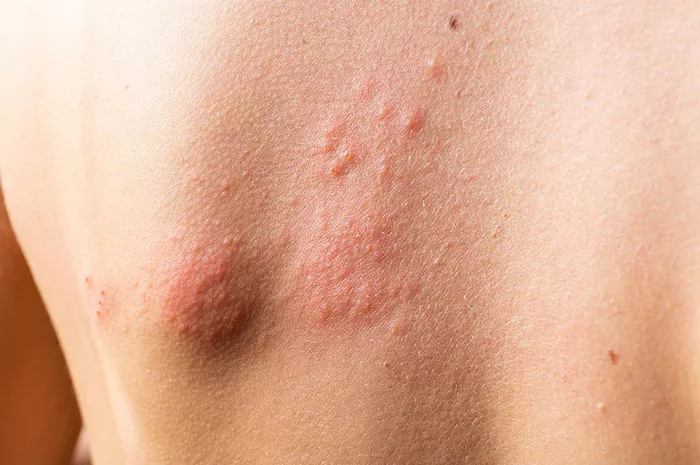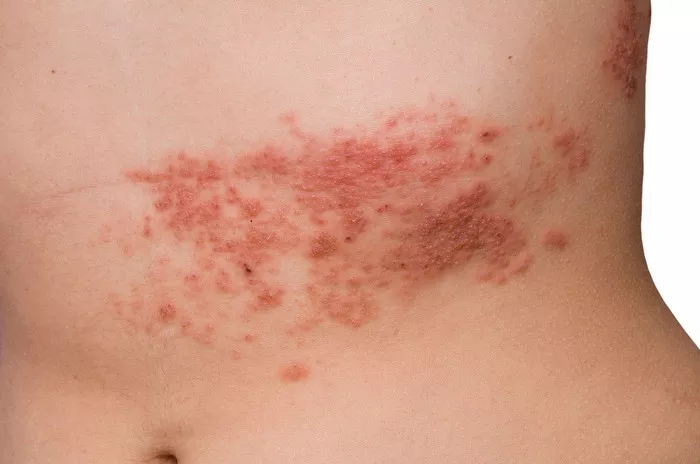Shingles, a viral infection that causes painful rashes and blisters, is caused by the varicella-zoster virus, the same virus that causes chickenpox. After a person has recovered from chickenpox, the virus remains dormant in the body, typically in the nerve cells. It can reactivate later in life, leading to a shingles outbreak. While the exact reason why the virus reactivates is not fully understood, stress is often believed to play a significant role in triggering shingles outbreaks. In this article, we will explore the relationship between stress and shingles outbreaks, including the role of the immune system, other contributing factors, and ways to manage stress to reduce the risk of shingles.
Understanding Shingles and Its Causes
Shingles (herpes zoster) is a condition that develops when the varicella-zoster virus, which causes chickenpox, reactivates in the body. After someone has had chickenpox, the virus becomes dormant in the nerve cells, particularly in the spinal cord and brain. Years or even decades later, the virus may reactivate, typically when the immune system is weakened, leading to an outbreak of shingles.
Shingles is characterized by a painful rash, often in a band or strip on one side of the body, usually around the torso, face, or eyes. The rash turns into blisters that eventually crust over. Although shingles is not contagious in the way that chickenpox is, the virus can be spread to individuals who have never had chickenpox or the chickenpox vaccine, causing them to develop chickenpox, not shingles.
The Role of Stress in Shingles Outbreaks
One of the most commonly asked questions about shingles is whether stress can cause an outbreak. While stress is not the sole cause of shingles, it is considered a significant contributing factor. Stress can weaken the immune system, making the body more susceptible to infections, including the reactivation of dormant viruses like the varicella-zoster virus.
How Stress Affects the Immune System
The immune system is responsible for defending the body against harmful pathogens, including viruses. Stress, particularly chronic or long-term stress, can have a direct impact on the immune system, making it less effective at preventing infections. Stress triggers the release of certain hormones, including cortisol, which can suppress the immune system’s ability to fight off pathogens.
Cortisol is often referred to as the “stress hormone” because it is produced in response to stress and is responsible for various physiological changes in the body. While cortisol can be helpful in short bursts (such as in response to acute stress), prolonged high levels of cortisol can lead to immune system suppression, making it more difficult for the body to control the varicella-zoster virus.
In the case of shingles, stress can trigger the reactivation of the virus by weakening the immune system’s ability to keep it in its dormant state. When the immune system is compromised, the virus may “wake up” and begin to replicate, leading to an outbreak of shingles.
Scientific Studies on Stress and Shingles
Several scientific studies have investigated the relationship between stress and shingles outbreaks. One study published in the Journal of Infectious Diseases found that individuals who experienced high levels of stress were more likely to develop shingles than those with lower stress levels. Another study in the Journal of Clinical Virology found that stress was a significant factor in triggering the reactivation of the varicella-zoster virus, particularly in individuals who had previously had chickenpox.
In these studies, researchers noted that the relationship between stress and shingles was not direct. Stress alone did not cause shingles outbreaks, but it was a significant contributing factor. Other factors, such as age, weakened immune function, and pre-existing health conditions, also played a role in determining whether a person would experience a shingles outbreak.
Other Factors That Contribute to Shingles Outbreaks
While stress is an important factor, it is not the only one that can trigger a shingles outbreak. Several other factors can contribute to the reactivation of the varicella-zoster virus:
Age
Age is one of the most significant risk factors for shingles. The majority of people who develop shingles are over the age of 50, and the risk increases as individuals age. As people get older, their immune system naturally weakens, making it more difficult for the body to keep the varicella-zoster virus dormant. The risk of developing shingles is much higher for individuals over 60 years old.
Weakened Immune System
A weakened immune system, due to conditions such as HIV/AIDS, cancer treatments (such as chemotherapy or radiation), organ transplants, or the use of immunosuppressive drugs, can increase the risk of developing shingles. When the immune system is compromised, the body is less capable of preventing the reactivation of dormant viruses.
Physical Trauma or Injury
Physical trauma or injury to a particular part of the body can sometimes trigger a shingles outbreak in that area. This may include surgeries, accidents, or even a minor injury to the skin. It is believed that the trauma causes a temporary weakening of the immune system, which may trigger the virus to reactivate in the affected nerve.
Other Health Conditions
Certain health conditions, such as diabetes, heart disease, and respiratory infections, may also increase the risk of developing shingles. These conditions can weaken the immune system, making it more difficult for the body to control the varicella-zoster virus.
Medications
Some medications, particularly those that suppress the immune system, can increase the likelihood of a shingles outbreak. For example, corticosteroids, which are often prescribed for conditions such as arthritis or asthma, can weaken the immune system and increase the risk of shingles.
The Psychological Impact of Shingles
Shingles outbreaks can be both physically and emotionally stressful. The pain caused by the rash, combined with the appearance of the blisters, can lead to anxiety, depression, and stress, creating a vicious cycle. It’s important to recognize the psychological toll that shingles can take and to seek appropriate treatment and support to manage both the physical and emotional aspects of the condition.
Managing stress effectively can help reduce the frequency and severity of shingles outbreaks. Mental health professionals, support groups, and stress-relief techniques can all play a role in helping individuals cope with the emotional challenges of shingles.
Managing Stress to Reduce the Risk of Shingles
Since stress is a significant contributing factor to shingles outbreaks, managing stress is one of the most effective ways to reduce the risk of developing shingles. Here are some strategies for managing stress and promoting overall health:
Regular Exercise
Exercise is one of the most effective ways to manage stress and boost the immune system. Physical activity helps to reduce the production of stress hormones like cortisol, while also releasing endorphins, which promote feelings of well-being. Regular exercise can help keep the immune system strong, reducing the likelihood of a shingles outbreak.
Relaxation Techniques
Relaxation techniques, such as meditation, deep breathing exercises, and yoga, can help calm the mind and reduce stress levels. These practices can activate the body’s relaxation response, lowering heart rate and blood pressure, and improving overall well-being. Regular practice of relaxation techniques can help reduce the impact of stress on the immune system.
Social Support
Having a strong support system can help alleviate the emotional burden of stress. Friends, family members, and support groups can provide emotional comfort, helping to reduce feelings of isolation and anxiety. Talking to someone about stressful events can help process emotions and reduce stress levels.
Getting Enough Sleep
Sleep is essential for both mental and physical health. Chronic sleep deprivation can increase stress levels and weaken the immune system, making the body more susceptible to infections like shingles. Aim for 7-9 hours of quality sleep per night to promote overall well-being.
Healthy Diet
A healthy, balanced diet is crucial for maintaining a strong immune system. A diet rich in fruits, vegetables, lean proteins, and whole grains can provide essential vitamins and nutrients that support immune function. Omega-3 fatty acids, found in foods like fish and flaxseed, can also help reduce inflammation and promote immune health.
Professional Help
If stress becomes overwhelming, seeking professional help from a counselor or therapist may be necessary. Cognitive-behavioral therapy (CBT) and other therapeutic approaches can help individuals learn effective coping strategies to manage stress and prevent emotional burnout.
Conclusion
While stress is not the sole cause of shingles, it is a significant contributing factor that can trigger the reactivation of the varicella-zoster virus. By understanding how stress impacts the immune system and adopting strategies to manage stress, individuals can reduce their risk of experiencing a shingles outbreak. In addition to managing stress, maintaining a healthy lifestyle, seeking medical treatment when necessary, and taking steps to protect the immune system can all play a role in preventing shingles outbreaks. It is important to take a holistic approach to health that addresses both physical and mental well-being to reduce the risk of shingles and other stress-related conditions.
Related topics:



























